Reality Check: What are the tariffs on trade with Africa?
- Published
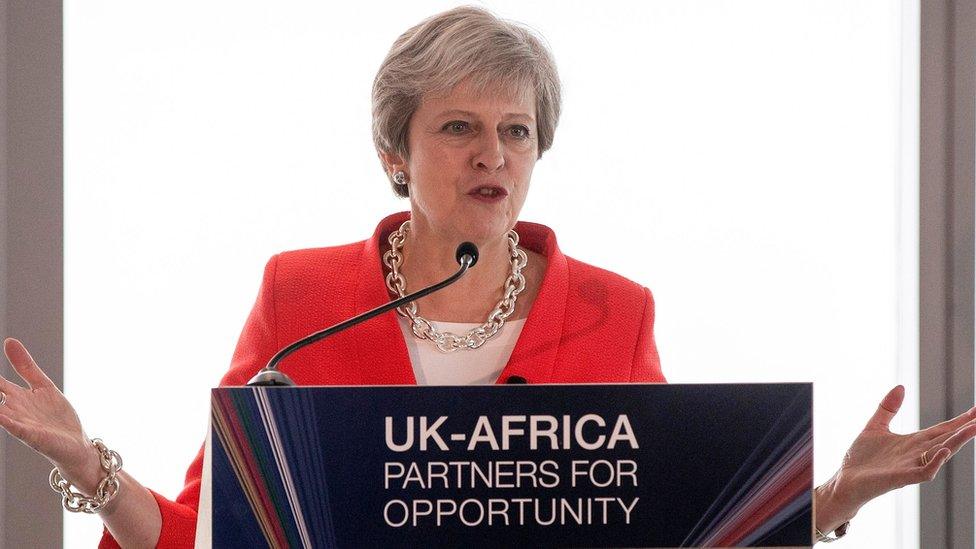
Prime Minister Theresa May's trip to Africa has generated vigorous debate about how easy trade is between Africa and the EU and whether the UK can keep the same arrangements or even lower barriers.
The European Union's critics sometimes invoke the presence of tariffs - effectively taxes on imported items - on African goods when they accuse it of being a protectionist club or racket.
So how much is there to this?
The relatively simple element is the EU's arrangement for a group of nations known as Least Developed Countries (LDCs.)
Of these LDCs, there are currently 33 in Africa - most of the countries on the continent. These "are low-income countries, external confronting severe structural impediments to sustainable development".
These countries have duty-free access for their goods to the EU under an initiative known as Everything but Arms (EBA). The same access is also given to Equatorial Guinea, which used to be an LDC country.
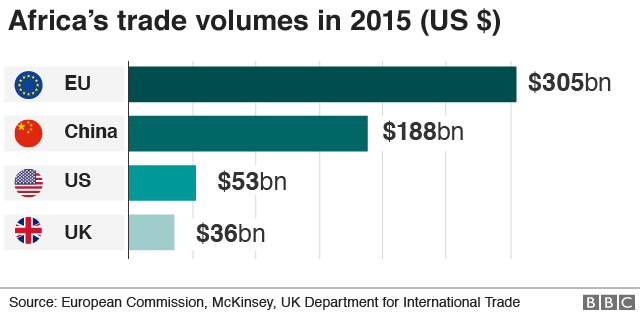
If it's not a weapon or ammunition, and it is made or grown in one of the countries concerned, it has duty-free access to the EU. If the product is from Ethiopia, Uganda or Malawi, for example, there would be no tariffs.
There may be other barriers - such as regulations, product standards and customs documents to complete - but that also applies to goods from other countries outside Europe's single market, including the US, Japan and Canada.
None of the three countries the prime minister is visiting - South Africa, Nigeria and Kenya - are on that United Nations list of LDCs. That is probably one of the reasons she chose them. They are bigger economic players and there is more to be gained from commercial relations with them.
But all three of them do get some degree of relief from EU trade tariffs.
There is an arrangement that covers other developing countries beyond the LDCs. It's known as the Generalised System of Preferences (GSP). Other rich countries, including the US and Japan operate their own GSPs.
The EU's version applies to Nigeria and has benefited Kenya but does not cover South Africa.
It doesn't open the tariff-free gates as wide as EBA does. The EU says it gives tariff-free access, external for 57% of products and reduced rates for most of the rest. But the minority of goods still subject to full tariffs are often farm produce.
Both the Everything but Arms and the Generalised System of Preferences are unilateral. The EU simply lowers or eliminates tariffs and the partner country is under no obligation to reciprocate and cut their own tariffs on imports from the EU.
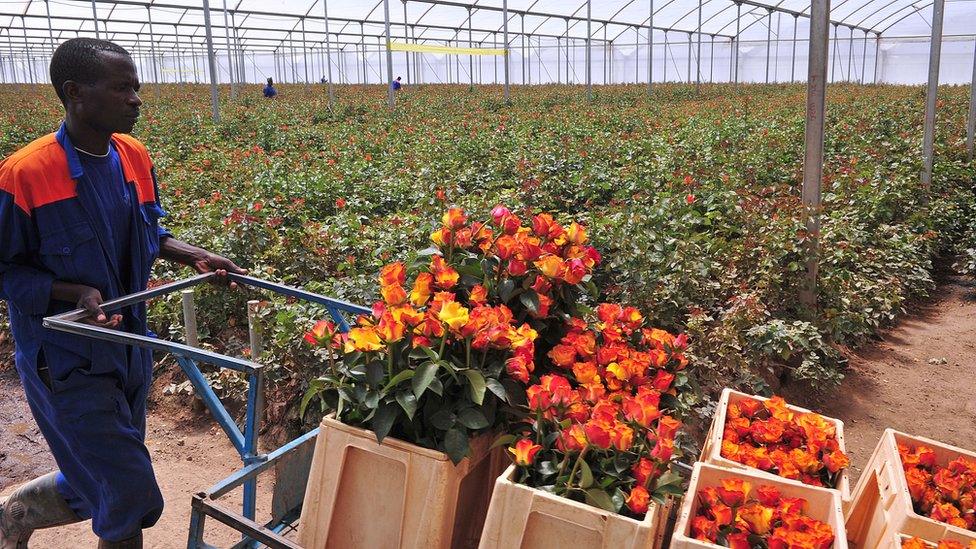
Kenya is a major exporter of flowers to Europe
But there are wider deals known as Economic Partnership Agreements (EPA). These go further and also mean a country like Kenya opening its market to the EU, though not as much as the EU does.
Kenya is part of an EPA through an East African regional group. Kenya has duty-free access on an interim basis until three other countries in the group sign and ratify it so the agreement comes into full effect.
South Africa, together with five other countries, has another partnership. The EU says it gives fully or partly duty-free access to 98.7% of imports coming from South Africa, external.
So there are tariffs that affect some South African goods. And it can get very complicated. For many types of agricultural products there are quotas at zero tariffs. For others there are reduced tariffs on a certain quota and higher duties on quantities above that.
Some tariffs vary seasonally - oranges have higher tariffs when the EU crop is available.
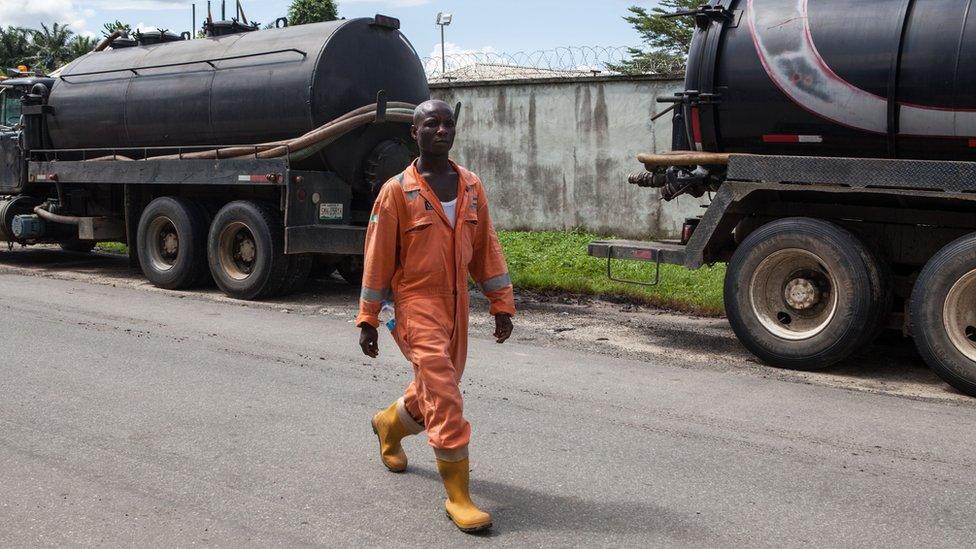
Nigeria's main export to the UK is crude oil
There are tariffs imposed on specific products from some African countries. Atiku Abubakar, a former vice-president of Nigeria writing in the Daily Express, external, was concerned about his own country. Mr Abubakar wrote that refined sugar from Nigeria faces a tariff of more than 300% if it's exported to the EU.
The EU tariff on imports of refined white sugar - not covered by any preferential arrangement or a reduced duty quota - is 419 euros per tonne. That probably would apply to sugar from Nigeria as it does not have an EPA and is not eligible for the EU's scheme for the least developed countries.
It is certainly true that the EU's tariffs on sugar are seen as high, although they are nowhere near as high as 300%, external.
But there is another point about the EU's tariffs. Countries that don't face EU tariffs often welcome them being applied to other countries. Dr Peter Holmes of the UK Trade Policy Observatory at Sussex University points out some African sugar producers take that view. Without the tariff they would struggle to compete against the giant of the industry, Brazil.
When Mr Abubakar writes that "if Nigeria and other African countries could export agricultural products tariff-free to Britain", the fact is that most of them already can.
Moreover Nigeria could get improved access to the EU if it accepted an EPA agreement negotiated with the EU and a group of West African nations. But President Buhari decided not to sign it, saying he wanted to protect the industries that provide jobs for Nigerians.



- Published28 August 2018
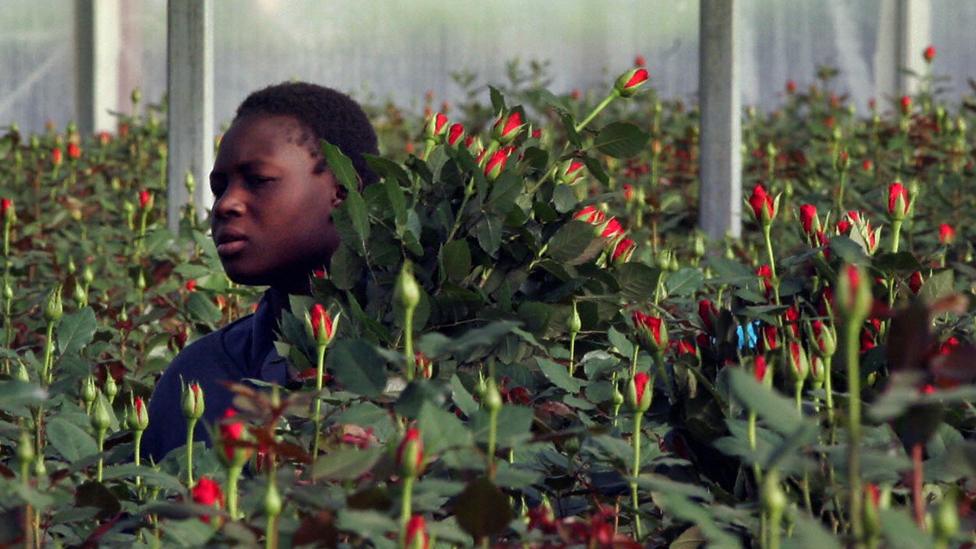
- Published21 March 2018
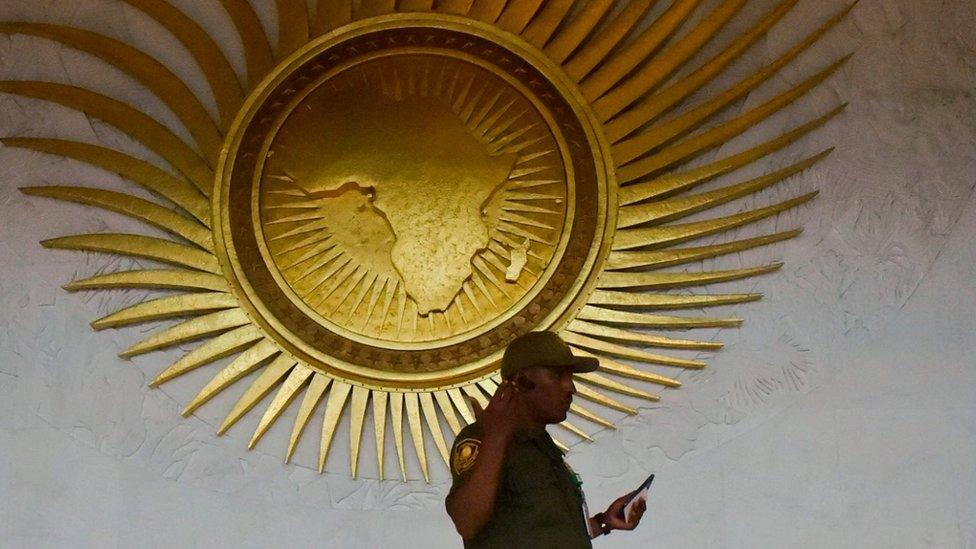
- Published30 December 2020
